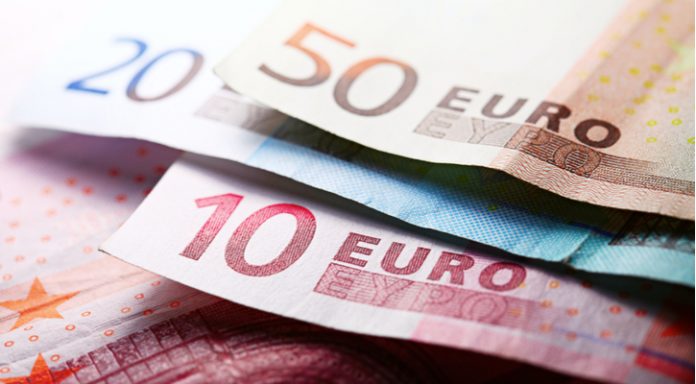Uninspiring UK inflation data and Brexit fears sent the pound lower versus the euro on Wednesday. The pound fell across the session, hitting a low of €1.1185.
| What do these figures mean? |
|---|
|
When measuring the value of a pair of currencies, one set equals 1 unit and the other shows the current equivalent. As the market moves, the amount will vary from minute to minute. For example, it could be written: 1 GBP = 1.13990 EUR Here, £1 is equivalent to approximately €1.14. This specifically measures the pound’s worth against the euro. If the euro amount increases in this pairing, it’s positive for the pound. Or, if you were looking at it the other way around: 1 EUR = 0.87271 GBP In this example, €1 is equivalent to approximately £0.87. This measures the euro’s worth versus the British pound. If the sterling number gets larger, it’s good news for the euro. |
Inflation in the UK, as analysts had predicted, rose July to 2.5% year on year, up from 2.4% in June. This was the first time that inflation has ticked higher since November. However, rising petrol prices and higher transport prices were principally to blame for the increase in inflation. Core inflation figures, which exclude more volatile items such as fuel, remain constant in July at 1.9%. Analysts believe that the price of oil will settle now, meaning that inflation is likely to remain constant at these levels or even dip lower. Yesterday’s figures will not put any pressure on the Bank of England to hike interest rates before summer next year. As a result, the pound declined.
| Why do raised interest rates boost a currency’s value? |
|---|
| Interest rates are key to understanding exchange rate movements. Those who have large sums of money to invest want the highest return on their investments. Higher interest rate environments tend to offer higher yields. So, if the interest rate or at least the interest rate expectation of a country is relatively higher compared to another, then it attracts more foreign capital investment. Large corporations and investors need local currency to invest. More local currency used then boosts the demand of that currency, pushing the value higher. |
The pound will remain in focus today with the release of UK retail sales data. With wage growth slowing and inflation remaining elevated, the squeeze on consumers pay checks is still strong. Analyst are expecting retail sales growth to have slowed in July to 2.7% year on year from 3% in June. Weaker than forecast numbers could pull the pound further southwards.
| Why does poor economic data drag on a country’s currency? |
|---|
| Slowing economic indicators point to a slowing economy. Weak economies have weaker currencies because institutions look to reduce investments in countries where growth prospects are low and then transfer money to countries with higher growth prospects. These institutions sell out of their investment and the local currency, thus increasing supply of the currency and pushing down the money’s worth. So, when a country or region has poor economic news, the value of the currency tends to fall. |
Economic data could be overshadowed as Brexit talks begin again today after the summer break. Further signs of the stalemate between the UK and Brussels will fan fears that the UK will crash out of the European Union without a Brexit deal. This could weigh on the value of the pound.
Euro Trades Remain Fixed On Turkey
Euro traders were on tenterhooks once again on Wednesday, keeping a close eye on Turkey and the Lira crisis. Turkey’s President Ankara put measures into place to stop the Lira from dropping lower which helped ease investor fears. With the Lira down over 20%, market participants were fearful that Turkish corporates with foreign debt, would be unable to pay. As European Banks have the largest exposure to Turkish debt, the risk to the European financial system is high. The risk is still present but with the Lira up over 4%, fears have eased. As a result, the euro was able to move higher.
With no high impacting eurozone data today, investors are likely to keep watching developments in Turkey.
This publication is provided for general information purposes only and is not intended to cover every aspect of the topics with which it deals. It is not intended to amount to advice on which you should rely. You must obtain professional or specialist advice before taking, or refraining from, any action on the basis of the content in this publication. The information in this publication does not constitute legal, tax or other professional advice from TransferWise Inc., Currency Live or its affiliates. Prior results do not guarantee a similar outcome. We make no representations, warranties or guarantees, whether express or implied, that the content in the publication is accurate, complete or up to date. Consult our risk warning page for more details.
This article was initially published on TransferWise.com from the same author. The content at Currency Live is the sole opinion of the authors and in no way reflects the views of TransferWise Inc.





